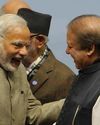The failure of Pakistan reverberates throughout the Indian subcontinent and beyond, especially among the Muslims.

THE CREATION OF Pakistan was premised on two fundamental fallacies. The first one, openly stated, was famously known as the “two-nation theory”. It held that sub-continental Muslims were a separate nation. But Muslims are not a nation. They constitute a religious, social, and cultural community that does not take too kindly to national boundaries. The two-nation theory failed within 25 years of Pakistan’s creation with the birth of Bangladesh in 1971.
The other unstated but perhaps even more flagrant fallacy was that the principle reason for Pakistan’s existence was its hatred of India and Hindus. This inveterate animosity, even contempt, was demonstrated soon after the Partition. The Pakistan army sent mercenaries and irregulars across the still fluid border to invade Kashmir, trying to wrest it from India. In the occupied towns, there was much looting and killing; many of the “captured” Hindu women were sold in the brothels of Rawalpindi.
Alarmed by the invasion, the last Maharaja of Kashmir, Hari Singh, asked for India’s help to save his state, signing the treaty of accession. This was a legal and binding act, of which the Pakistani state is in perpetual denial. Gandhi himself advised Nehru to airlift Indian troops to defend Kashmir. Though the Pakistani assault was foiled and pushed back to the present LoC, hating India and the Hindus has become a way of life for the Pakistani state. The latter itself, soon after, was hijacked by the army, which remains deeply invested in this false and pernicious doctrine.
This story is from the November 2016 edition of Swarajya Mag.
Start your 7-day Magzter GOLD free trial to access thousands of curated premium stories, and 9,000+ magazines and newspapers.
Already a subscriber ? Sign In
This story is from the November 2016 edition of Swarajya Mag.
Start your 7-day Magzter GOLD free trial to access thousands of curated premium stories, and 9,000+ magazines and newspapers.
Already a subscriber? Sign In

Refuging Progess
There is a well-orchestrated global conspiracy to deny scientific and technological developments from the West to Third World countries.

The Monk Of Science
Vivekananda believed that Religion should be subjected to scientific methods of investigation. The third and concluding part of our series on the Swami and his views on science.
The Next Step
Indian technical manpower can be trained for high-value-added emerging services in the era of mass commoditisation of hardware.
The Threat Of Autarchy
The force of globalisation is an irreversible reality, and it is countries like India and China that will nurture it going forward.

Neanderthals: The Womb Of Caves
Recent discoveries indicate that Neanderthals may have had a rich inner life, including symbolic thought. Indeed, they may have been the progenitors of human religions.

Getting India's World Right
Incremental concessions will get India nowhere with Pakistan and China. What we need is a classically conservative foreign policy, based on realism.

The Hesitant Orbit
In order to march boldly ahead into the deep space, New Delhi must work towards building a station, boost its techno-economic planning and use the Indian Space Research Organisation smartly.

Nudges And Narratives
The debate surrounding Sanjay Leela Bhansali’s Padmavati brings India a complex network of portraits within a cultural world-system.

The Spell Of Specialisation
THE INDIAN ADMINISTRATIVE SERVICE NEEDS AN URGENT REJIG. THE KEY TO SPEED AND EFFICIENCY LIES IN PUTTING AN END TO A GENERALIST APPROACH AND IN GOING FOR A NEW SERVICE.
The Great Gamble
With demonetisation, the prime minister has taken a huge risk— both economic and political. He must succeed, because this move could transform both our economy and our society.